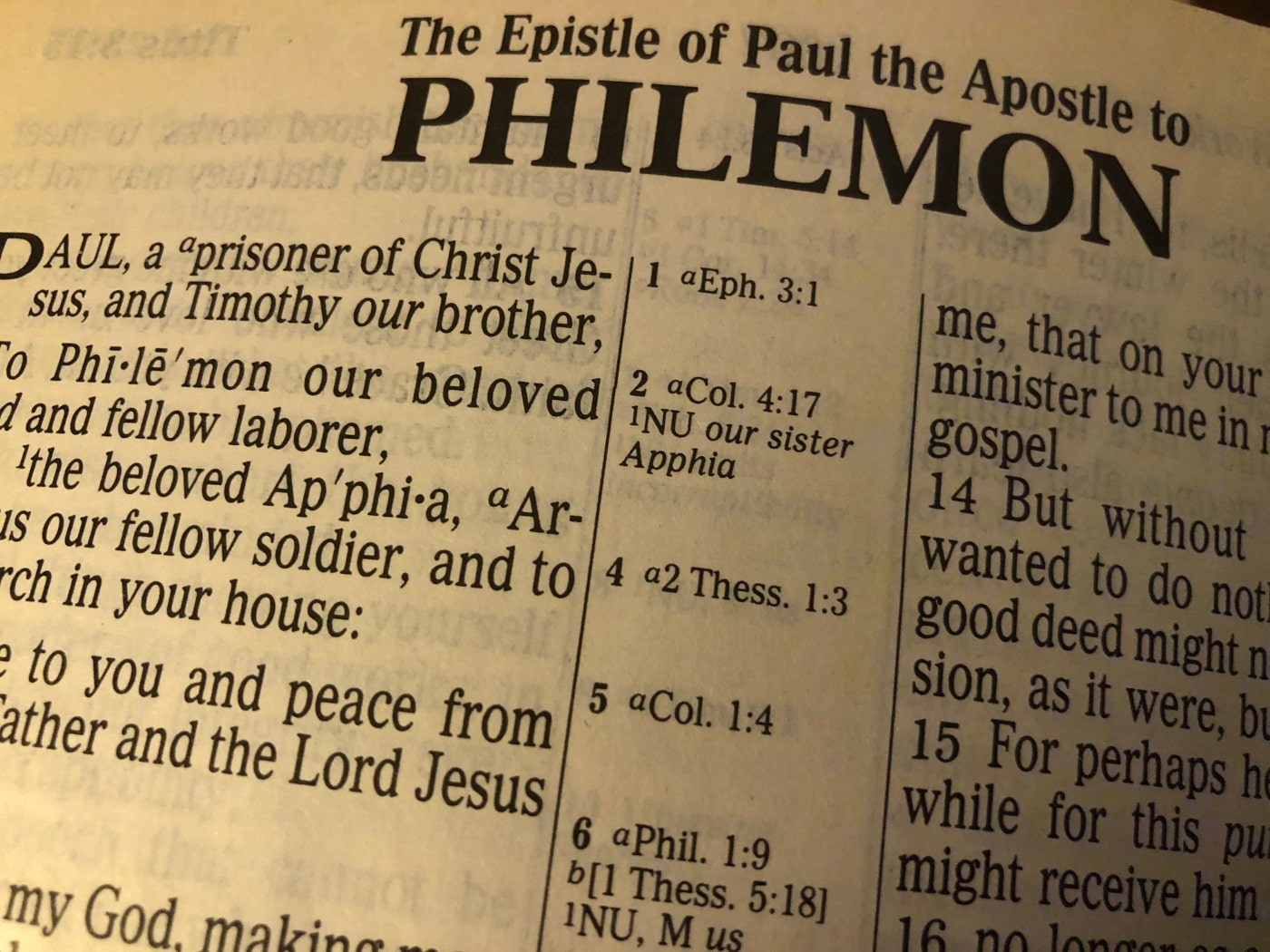Gene Cunningham - August 2, 2011
Philemon #5

We don't know always how to pray. In the context of hope, the Spirit's intercession for us in prayer (Rom 8:24-26). Mustard seed parable: (1) the mustard bush had fragrance and birds were attracted. When we grow we benefit others (Rom 15:1); (2) pungency — the leaves were flavorful when used on food; (3) security — provided safe haven for birds. We enter eternal life freely, but inheriting eternal life is costly (Rom 8:15-17); you have to be a son before becoming heir. In Romans 15, "Heirs of God" suggests eternal life; "joint heirs with Christ" has a condition of suffering with Him (1Pe 1:4).
The fellowship (Greek: "kononia") of Philemon's faith (Phm 1:6) will take spiritual growth. Elements of discipleship and spiritual growth are:
- The call to eternal life is a free gift; the call to discipleship is costly (Mat 11:28-29, Luk 9:23, Luk 14:25-32).
- To be a disciple implies personal spiritual growth into conformity to Christ (2Pe 1:5-7, 2Pe 3:17-18, Rom 12:1-2).
- There are three essential elements of personal transformation -- faith, hope, and love (1Th 1:3-10, Rev 12:11).
- Paul is challenging Philemon to become even more effective Phm 1:5-6, 1Th 4:1, 1Th 4:10, Phi 1:9-11).
- True spiritual growth is personal or isolated,; it is aimed at the benefit and blessing of other believers (Eph 4:11-16).
- A one-word summary is "fellowship" is a relational setting.
To Philemon and Onesimus, Paul becomes an example of Jesus Christ our mediator (Phm 1:8-18). Paul is the mediator who is able to have empathy for both the offended and the offender. Like his Master, he is always seeking to bring reconciliation. Paul is willing to pay the debt to reconcile Philemon and Onesimus (Phm 1:19). God's redemptive plan works not by command but by the apeal of love (Phm 1:8-9). You cannot force Grace (Joh 3:16, Eph 2:8). There has to be an intercessor with estranged parties. Paul calls himself "the aged" though the Romans considered that you were "old" at 60 years old. Paul wasn't 60 yet. Paul acts as an (Greek: "presbutes") ambassador (Eph 6:20). Onesimus left as a runaway slave and thief. It's possible Onesimus actually sought Paul out. The consequenses are still there from bad decision made in carnality. Redemption makes possible the new birth; "I have begotten him" (Phm 1:10). In the new spiritual life, wishes and desires must all be subordinated to the will of God considering the freedom of others (Phm 1:13-14).
How profitable is your faith? Who is benefitting by your life? Before conversion, Paul wanted the benefits of advancement (Phi 3:1-6). Jacob was self-centered and selfish (as the meaning of his name implies). The wrestling angel, after impairing Jacob, asked him his name. This was to reveal his real character and helplessness. Jacob had to own up to who he had been. The angel renames him to "Israel", to denote real transformation.
Conference notes for this series can be found [HERE]
Scripture References: Ephesians 4:11-16, Ephesians 6:20, Matthew 11:28-29, Philippians 1:9-11, Ephesians 2:8, Philippians 1:6, Philippians 1:5-6, John 3:16, Romans 8:15-17, Revelation 12:11, Philippians 1:8-9, Romans 15:1, Philippians 3:1-6, Romans 12:1-2, Philippians 1:19, Romans 8:24-26, Philippians 1:13-14, Luke 14:25-32, Philippians 1:8-18, Philippians 1:10, Luke 9:23
From Series: "Philemon - A Living Parable of God's Redemption - California 2011"
In Philemon 10-11 Paul writes 'I appeal to you for my son Onesimus whom I have begotten while in my chains who once was unprofitable to you but now is profitable to you and to me.' These verses highlight the theme of the letter namely redemption and reconciliation. The annual Weekend Bible Conference was held 5-7 August 2011 in Orange County California.

